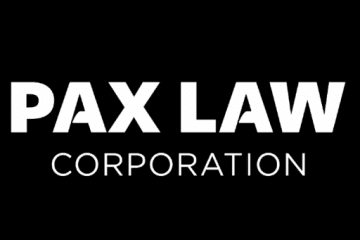Launching a business in British Columbia (BC) requires careful consideration of various legal factors. From choosing the right business structure to complying with tax obligations, entrepreneurs need to navigate through a complex web of legal requirements. Additionally, protecting intellectual property is crucial for long-term success. In this article, we will explore these essential legal factors that entrepreneurs must be aware of when starting a business in BC.
Table of contents
Choosing the Right Business Structure
One of the first and most crucial legal decisions entrepreneurs in BC must make is choosing the right business structure. The most common options include sole proprietorship, partnership, and incorporating as a limited liability company. Each structure has its own advantages and disadvantages, which can significantly impact various legal aspects such as liability, taxation, and ownership. It is important to thoroughly research and understand the legal implications of each structure before making a decision. Seeking professional advice from a lawyer or accountant is highly recommended to ensure the chosen structure aligns with the business goals and provides the necessary legal protections.
Understanding the Legal Requirements
Launching a business in BC requires compliance with various legal requirements. These requirements may include obtaining necessary licenses, permits, and registrations at the federal, provincial, and municipal levels. Entrepreneurs should familiarize themselves with the specific regulations and laws that apply to their industry or type of business. Failure to meet these legal requirements can result in penalties, fines, or even legal disputes. It is crucial to conduct thorough research, seek legal counsel if needed, and ensure compliance with all applicable laws and regulations to avoid potential legal consequences.
Complying with Tax Obligations
Every business in BC is subject to tax obligations. Entrepreneurs must register for applicable taxes, such as the Goods and Services Tax (GST) or the Provincial Sales Tax (PST), depending on the nature of their business. Additionally, businesses are required to keep accurate records, file tax returns, and pay taxes on time. Understanding the tax obligations and ensuring compliance is essential to avoid penalties and legal issues. Seeking advice from a tax professional or accountant can help entrepreneurs navigate the complex tax system and ensure compliance with all tax obligations.
Protecting Intellectual Property
Intellectual property (IP) refers to creations of the mind, such as inventions, designs, trademarks, and copyrights. Protecting IP is crucial for businesses to maintain a competitive edge and prevent unauthorized use or infringement by others. In BC, entrepreneurs can protect their IP through various legal mechanisms, such as patents, trademarks, and copyrights. It is important to understand the different types of IP protection available and take necessary steps to safeguard the business’s intellectual assets. Consulting with an intellectual property lawyer can help entrepreneurs identify and protect their valuable IP assets.
Launching a business in BC requires careful consideration of various legal factors. Choosing the right business structure, understanding legal requirements, complying with tax obligations, and protecting intellectual property are essential steps for entrepreneurs to ensure a solid legal foundation for their business. By being aware of these legal factors and seeking professional advice when needed, entrepreneurs can navigate the legal landscape in BC and set their businesses up for long-term success.
This post is not intended to be legal advice, for legal advice please consult with a lawyer.
The main business structures in BC include sole proprietorship, partnership, and incorporation as a limited liability company. Each has different legal, tax, and liability implications.
A sole proprietorship offers simplicity but doesn’t separate personal and business liabilities, while a corporation provides limited liability protection but comes with more regulatory requirements.
Yes, most businesses in BC must be registered with the BC Corporate Registry or as an extra-provincial company if you’re expanding from another province.
Depending on your business type, you may need federal, provincial, or municipal licenses. Examples include business licenses, health permits, and industry-specific certifications.
Businesses may need to register for Goods and Services Tax (GST), Provincial Sales Tax (PST), and other taxes depending on the nature of their business. Accurate tax filing and payment are crucial.
Most businesses in BC must collect GST and possibly PST if they meet the threshold requirements. Exceptions apply to certain industries and small suppliers.
You can protect your business name by registering it with the BC Corporate Registry. Additionally, trademarking your business name can offer broader protection.
Intellectual property includes creations like inventions, designs, trademarks, and copyrights. Protecting IP helps prevent unauthorized use and safeguards your competitive advantage.
You can apply for a trademark through the Canadian Intellectual Property Office (CIPO). A lawyer specializing in IP can assist with the process to ensure thorough protection.
Yes, you can use a trade name as a sole proprietor or partnership, but incorporation offers additional legal protections, like limited liability.
Incorporation provides limited liability protection, potential tax advantages, and a more professional image for your business.
While not mandatory, consulting a lawyer is highly recommended to ensure your business complies with legal regulations and is structured appropriately for your goals.
To incorporate, you need to file articles of incorporation with the BC Corporate Registry, choose a business name, and pay the required fees. You may also need to register for provincial and federal tax numbers.
A business lawyer can help with structuring your business, drafting contracts, ensuring regulatory compliance, and protecting intellectual property.
You can register for GST through the Canada Revenue Agency (CRA). Businesses earning over $30,000 annually must register for GST.
Non-compliance can result in penalties, fines, or legal action. It’s crucial to adhere to licensing, tax, and other regulatory requirements to avoid these consequences.
The timeline varies depending on your business type and structure. Registration processes, licensing, and incorporation typically take a few days to several weeks.
While not legally required, a written partnership agreement is highly recommended to outline roles, responsibilities, profit sharing, and dispute resolution procedures.
Incorporating your business, purchasing appropriate insurance, and drafting contracts that limit liability are key steps to protecting your business from potential legal risks.
While not legally required, a business plan is essential for outlining goals, strategy, and financial projections. It can also be necessary for obtaining financing or investors.



0 Comments